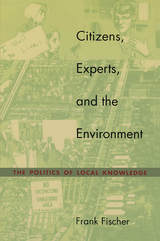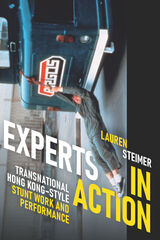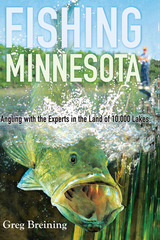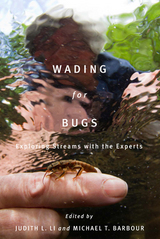
Where information ideologues see the modern increase in information as capable of making everyone smarter, others see the emergence of a society divided between those with and those without knowledge. Suggesting realistic strategies to bridge this divide, Fischer calls for meaningful nonexpert involvement in policymaking and shows how the deliberations of ordinary citizens can help solve complex social and environmental problems by contributing local contextual knowledge to the professionals’ expertise. While incorporating theoretical critiques of positivism and methodology, he also offers hard evidence to demonstrate that the ordinary citizen is capable of a great deal more participation than is generally recognized. Popular epidemiology in the United States, the Danish consensus conference, and participatory resource mapping in India serve as examples of the type of inquiry he proposes, showing how the local knowledge of citizens is invaluable to policy formation. In his conclusion Fischer examines the implications of the approach for participatory democracy and the democratization of contemporary deliberative structures.
This study will interest political scientists, public policy practitioners, sociologists, scientists, environmentalists, political activists, urban planners, and public administrators along with those interested in understanding the relationship between democracy and science in a modern technological society.



Iris Murdoch once suggested that to understand any philosopher's work we must ask what he or she is frightened of. To understand any psychoanalyst's work--both as a clinician and as a writer--we should ask what he or she loves, because psychoanalysis is about the unacceptable and about love, two things that we may prefer to keep apart, but that Freud found to be inextricable. If it is possible to talk about psychoanalysis as a scandal, without spuriously glamorizing it, then one way of doing it is simply to say that Freud discovered that love was compatible, though often furtively, with all that it was meant to exclude. There are, in other words--and most of literature is made up of these words--no experts on love. And love, whatever else it is, is terror.
In a manner characteristically engaging and challenging, charming and maddening, Adam Phillips teases out the complicity between desire and the forbidden, longing and dread. His book is a chronicle of that all-too-human terror, and of how expertise, in the form of psychoanalysis, addresses our fears--in essence, turns our terror into meaning.
It is terror, of course, that traditionally drives us into the arms of the experts. Phillips takes up those topics about which psychoanalysis claims expertise--childhood, sexuality, love, development, dreams, art, the unconscious, unhappiness--and explores what Freud's description of the unconscious does to the idea of expertise, in life and in psychoanalysis itself. If we are not, as Freud's ideas tell us, masters of our own houses, then what kind of claims can we make for ourselves? In what senses can we know what we are doing? These questions, so central to the human condition and to the state of psychoanalysis, resonate through this book as Phillips considers our notions of competence, of a professional self, of expertise in every realm of life from parenting to psychoanalysis. Terrors and Experts testifies to what makes psychoanalysis interesting, to that interest in psychoanalysis--which teaches us the meaning of our ignorance--that makes the terrors of life more bearable, even valuable.

READERS
Browse our collection.
PUBLISHERS
See BiblioVault's publisher services.
STUDENT SERVICES
Files for college accessibility offices.
UChicago Accessibility Resources
home | accessibility | search | about | contact us
BiblioVault ® 2001 - 2024
The University of Chicago Press









